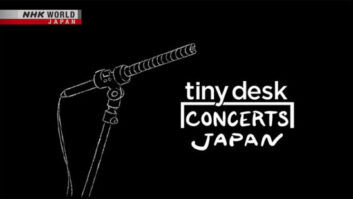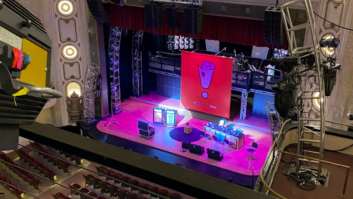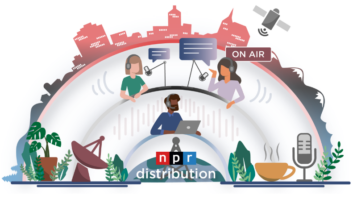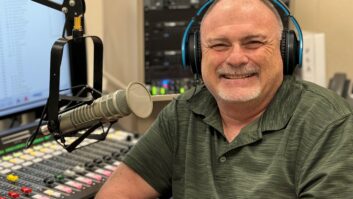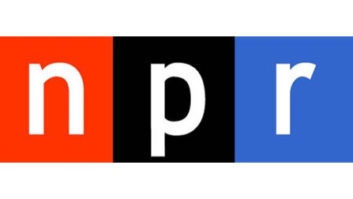NABET Contract Includes Job Guarantee in Wake of Jurisdictional Work Rules Change
WASHINGTON Broadcast recording technicians at National Public Radio no longer hold the exclusive right to mix audio for broadcast at the network’s Washington headquarters and its U.S. bureaus.
Unionized technicians in August overwhelmingly voted in favor to approve their first contract since the union’s certification in April 1999. The National Association of Broadcast Employees and Technicians, a sector of the Communications Workers of America, represents the 80 or so technicians.
NABET-affiliated technicians had rejected an NPR contract offer earlier this year after company officials insisted on changing work rules to allow non-technicians to mix audio for air.
The jurisdictional work rules had been in place since 1989 when technicians were given the exclusive right to mix audio. NPR management said modernized work rules were needed because the network is now using new editing technology that increases efficiency.
Flexibility
Union bargainers say the offer was approved thanks to a larger pay increase and a promise that no technicians would be laid off as a result of the work rule changes.
“We are satisfied with the contract, and so is membership. There was some flexibility in the final language on both sides,” said Paula Olson, the NABET staff representative for NPR.
Technicians will receive a 5-percent pay increase retroactive to 2001 and 3-percent raises in subsequent years until the contract expires in Oct. 1, 2004. The contract also includes a 1-percent signing bonus, Olson said.
NPR technicians previously earned a top annual wage of $62,059 after four years of service. Technicians hired before the new contract went into effect last month will now earn a top wage of $71,204 in their fifth year. Technicians hired in the future will be on a newly implemented 10-step pay scale, receiving top pay in their tenth year.
Ken Stearn, executive vice president at NPR, said the public broadcaster would immediately begin training its reporters, producers and editors on computer-based digital editing software. NPR’s digital transition began in 1997 with the purchase of Dalet Digital Media Systems software for newsroom workstations.
The new work rules will go through an evolutionary process to determine exactly how much audio mixing NPR reporters, editors and producers do, Stearn said.
“We think this way we’ll wind up with a more integrated system. The NPR sound will not be compromised. If anything, we believe we can use the new computer technology to further improve the NPR sound of the future,” he said.
NPR technicians had claimed during contract negotiations that allowing non-technicians to mix audio would compromise the overall “NPR sound” to which listeners have become accustomed.
AFTRA contract
The American Federation of Television and Radio Artists covers NPR reporters, producers, anchors and editors in the production unit. Stearn said the management rights clause in the AFTRA contract gives NPR the right to assign mixing duties to AFTRA members.
“We had discussions with AFTRA about mixing to specifically inform them of our proposal to the technicians. AFTRA never expressed any concerns with us about the mixing issue,” Stearn said.
Olson said she is curious to see how the members of AFTRA will react to being assigned additional job duties.
The contract calls for NPR technicians to maintain quality-control responsibilities, Stearn said.
“(Technicians) will certainly still do the majority of the mixing and have a say in what actually airs,” he said.
Olson said technicians will be able to reject substandard three-source mixes, but not two-source mixes.
Stearn said AFTRA members in the news division can immediately begin to mix stories with two audio sources. Eventually, NPR producers will be permitted to do three-source mixing.
A so-called blackout period calls for broadcast recording technicians to mix three-source stories that are scheduled to air within three hours or less, Stearn said.
The new contract contains no new work assignments for technicians, Stern said. NPR technicians previously spent approximately 65 percent of their time mixing audio.
Olson said no NPR technician can be laid off as a result of the jurisdictional changes for the life of the contract.
As for when the new contract expires in 2004, Olson said, “Job-security issues are always a part of contract negotiations. It’s just too early to worry about that yet.”
After three years of trying, Stearn said it was clear to all parties that the time had come for an agreement.
“We are pleased with the results. With the agreement, our technician unit will remain a very important part of the NPR product,” Stern said.






